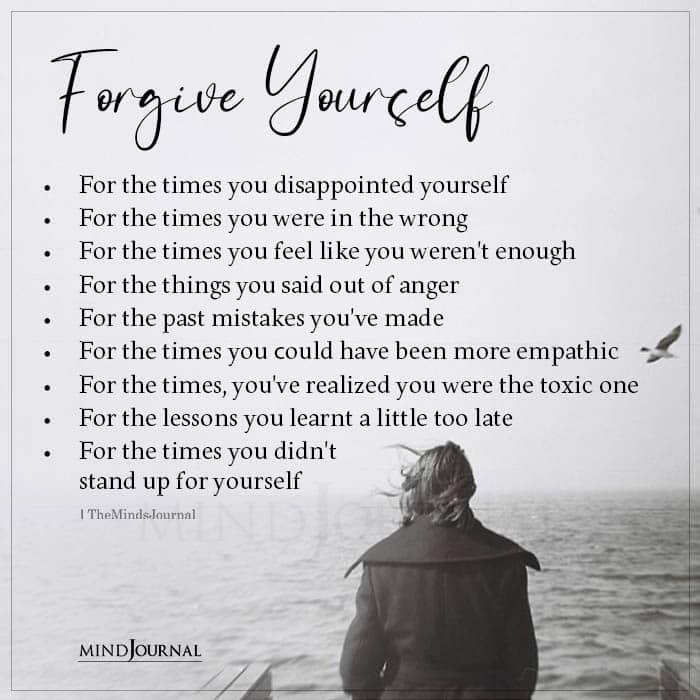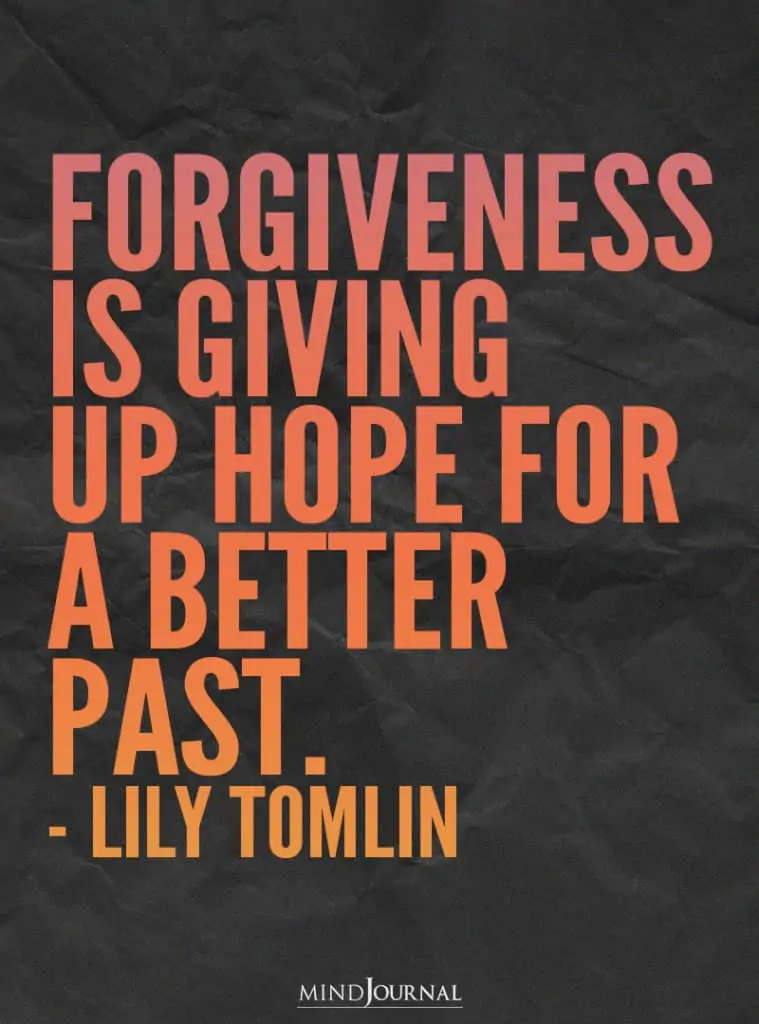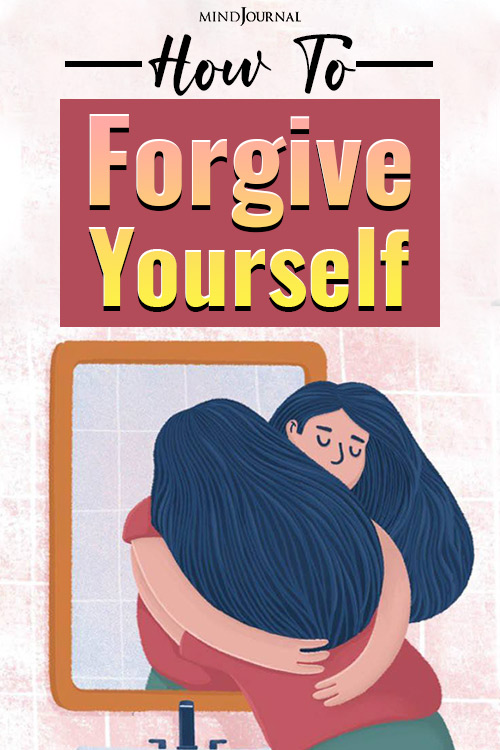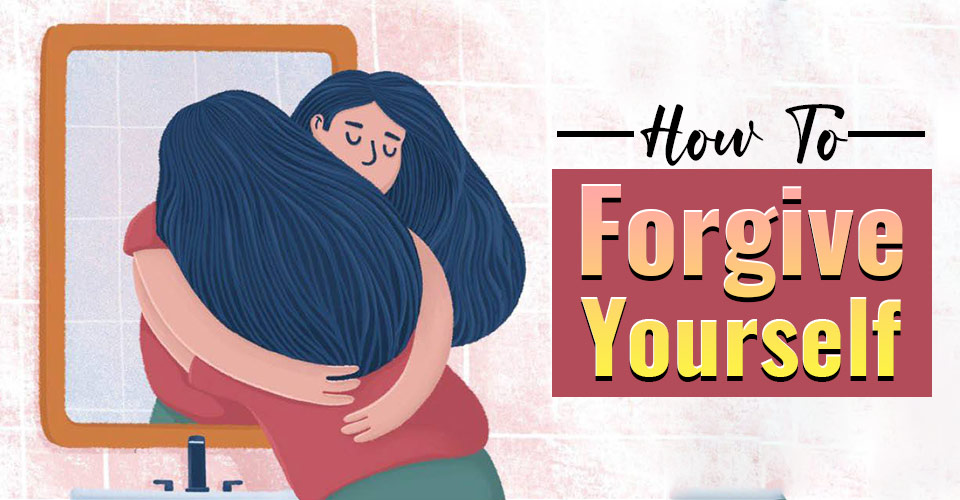Self-forgiveness. It’s not a term we hear often. It is commonly eclipsed by literature, articles, and speakers touching on the topic of how to forgive others. In Alcoholics Anonymous, we are taught to forgive those who we are resentful of and to pray for those who have hurt us so that we can release ourselves from the bondage of our own resentment and self-will.
But what about the difficult task of forgiving ourselves?
As humans, we have the tendency to focus on getting others to forgive us. “If only they would forgive me for my mistake, I would feel better.” “If they can forgive me, I’ll obviously be able to forgive myself.”
But that is so far from the truth.
Have you ever been forgiven by another, only to ruminate later about whatever it is you did wrong and how you “should have” done differently?
Related: 10 Signs Of Self-Hatred And How To Overcome
Self-forgiveness begins and ends internally. The reality is that we may never be fully forgiven by others, but that absolutely does not mean that we cannot find inner peace by forgiving ourselves. Additionally, even if everyone else that we have wronged forgives us, we will not feel peace and contentment until we truly forgive ourselves.
I am a firm believer that we cannot shame our way into growth.
Quite the contrast, it is by the way of self-forgiveness and self-compassion that we can acknowledge our shortcomings and move forward with strength, empowerment, and self-love.

So How Do We Forgive Ourselves?
Like any problem-solving process, the first step is to first acknowledge what it is your need to forgive yourself for. If you are so burdened by the weight of your past actions of ways you are currently falling short of your chosen ideals, start by honing in on one specific thing.
This may sound trivial, but the little moments each day that we fall short of who we want to be can accumulate and add to a growing abyss of shame and self-deprecation.
So we pick one thing that we are shaming ourselves for and hone in on it.
Now, we add some reality and fact-checking to it. Am I really a bad person to the core? No. Was my intention to cause harm? No. Is it possible that I’m only human and in that moment I was feeling overwhelmed by a plethora of different life circumstances which caused me to lash out? Yes. Is this a reflection of who I am as a person? No.
Related: 15 Ways To Be Kind To Yourself (Especially When Feeling Down)
Already, sanity and self-compassion are returning. The next step is looking at how we can change our actions.
Talk is cheap. We all know this. I can apologize for something until I’m blue in the face, but unless I change my behavior, that self-forgiveness is never going to manifest internally because my intentions and actions are not aligned.
We call this being in a state of cognitive dissonance.
Simple (yet sometimes difficult) solution: change our actions!

There doesn’t need to be much explanation there. If I am upset with myself for lashing out, I change my behavior by acknowledging that I was in a bad mood, apologizing for my behavior, and making an internal note to be more appreciative and patient with my significant other, even when I’m hangry. (Hanger is real. For me, I get super angry when I’m hungry. Do you?)
If I am beating myself up for speaking badly about a friend behind their back, when that is something I judge harshly in others, I need not shame myself repeatedly. All I can do is acknowledge where I fell short, which I will continue to do because I’m human and innately imperfect, forgive myself, and set the intention to change. Even just one day at a time.
I set intentions every morning. Today my intentions are to practice courage over comfort, try to be cognizant of the tendency to become judgmental, and practice love and tolerance.
I hope this post was helpful in figuring out how to forgive yourself.
Related: 12 Things You Should Forgive Yourself For
Remind yourself on a daily basis:
- You are human. You are not perfect.
- You cannot shame yourself into growth.
- There is no benefit of ruminating and continuing to shame yourself.
- We cannot receive forgiveness until we truly forgive ourselves.
- Action speaks louder than words. Change your action.
You are worthy of self-forgiveness. We all are.
Written By Hannah Rose Originally Appeared On Psychology Today









Leave a Reply
You must be logged in to post a comment.